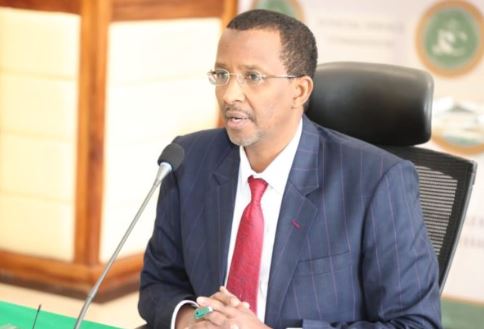Impropriety, eternal enemy of genuine business

Illicit trade can severely hamper a country’s ability to grow its Gross Domestic Product (GDP) and improve the standard and quality of life for its citizens.
Not only does it put lives of citizens at great risk as counterfeit and substandard goods, and dangerous goods infiltrate the market, it also eats into the market share of legitimate businesses.
Consequently, manufacturers either cut down their production or close shop as they cannot compete.
This also means governments lose huge portions of revenues due to tax evasion by counterfeiters.
Furthermore, it infringes on intellectual property rights and erodes the reputation of genuine products and companies that have cultivated honest brands through continuous research and development.
According to the National Baseline Survey Counterfeit and Illicit Trade in Kenya, the total volume of illicit trade stood at Sh726 billion in 2017 and increased to Sh826 billion in 2018.
The statistics represent 8.9 per cent and 9.3 per cent of Kenya’s GDP, which is higher than the manufacturing sector’s contribution to the country’s economy.
As such, great effort must be made to fight this vice that not only erodes the market share of genuine manufactured products but also threatens expansion of industries and hampers creation of jobs.
In doing so, the country will be in a position to protect citizens, raise their standards of living and enforce ethics.
Illicit trade is not unique to Kenya. According to the World Economic Forum, economic leakages from illicit trade create an annual drain on the global economy of $2.2 trillion.
This is nearly 3 per cent of the world’s economy. If illicit trade were a country, its economy would be larger than Brazil, Italy and Canada – and as large as Mexico and Indonesia combined.
Understanding illicit trade is key to effectively fighting the vice. Currently, there is little comprehension in the justice system of what constitutes illicit trade and the existing legal framework to help in the prosecution of cases of illegal trade. This makes it easy for perpetrators of illicit trade to thrive.
By creating awareness to the public and enforcement officers on legal matters, evidence building, the role of consumers and public-private partnership in the fight against the vice, we would be in a position to effectively fight it.
Kenya is making strides to create awareness on illicit trade, at both individual and organisation levels.
This includes efforts by the National Council on the Administration of Justice, in partnership with the Kenya Association of Manufacturers (KAM), to collate information necessary to curb the vice into the updated Enforcement Manual to Combat Illicit Trade in Kenya.
The manual serves as a reference point on all matters of illicit trade and will help those in the justice system to make better decisions in fighting the vice.
It highlights the factors contributing to illicit trade, commodities affected and the common modes of counterfeiting products.
Additionally, the manual features applicable laws and describes procedures surrounding prosecution of illicit trade and the fight against it in a simplified format.
The manual is also a useful resource for investigators, courts and the general public.
It aims to create awareness of the problem and existing mechanisms for reporting and handling cases when they occur.
Increased knowledge levels can reduce the misunderstanding that enables perpetrators of illicit trade to continue to benefit unjustly while they endanger communities and individuals.
Furthermore, by raising awareness of the bigger picture and sustaining proactive enforcement against illicit trade, we can deconstruct it as a normal way of life. — The writer is the CEO of Kenya Association of Manufacturers and the UN Global Compact Kenya Chapter Board Chair—ceo@kam.co.ke












